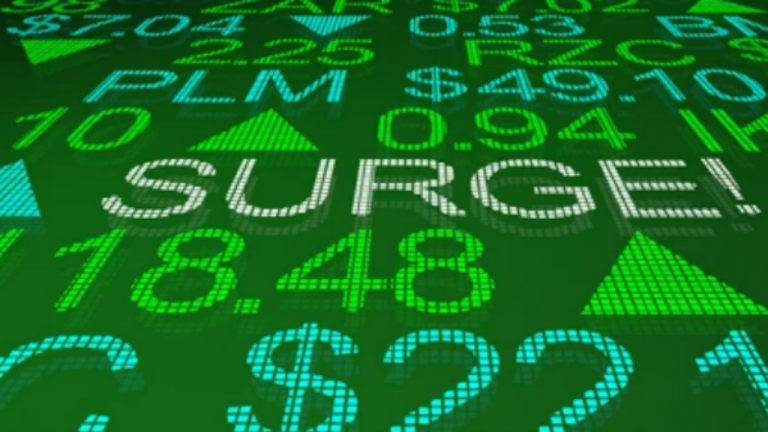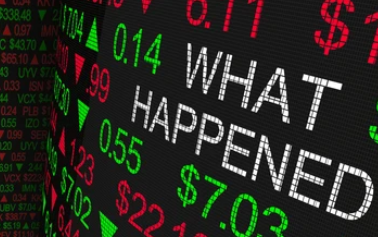Following Wall Street’s longest sequence of weekly declines since the dotcom implosion more than two decades ago, U.S. equities closed higher on Monday. Gains from banks and a resurgence in market-leading tech firms fueled a broad-based rise.
All three major U.S. stock indexes rose between 1.6 and 2.0 percent, with Apple Inc (NASDAQ:AAPL) and Microsoft Corp (NASDAQ:MSFT) contributing the most to the gains (NASDAQ:MSFT).
After the largest U.S. bank, JPMorgan Chase & Co (NYSE:JPM), upgraded its outlook for the current year’s interest income, shares of interest rate-sensitive banks increased by 5.1%.
The stock price of JPMorgan Chase rose 6.2%.
It appears to be more of a relief rally than a fundamental shift in market attitude, according to Oliver Pursche, senior vice president of Wealthspire Advisors in New York. “Investors as a whole believe that another shoe is about to drop, and they are likely correct in the short run.”
Friday’s closing price for the S&P 500 was 18.7 percent below its record closing high on January 3. If the benchmark index closes 20% or more below that record, it will confirm that a bear market has existed since then.
In recent weeks, markets have been roiled by concerns over chronically high inflation and strong efforts by the Federal Reserve to bring it in, as the global economy deals with the aftermath of Russia’s invasion of Ukraine.
Chuck Carlson, chief executive officer of Horizon Investment Services in Hammond, Indiana, stated, “It would suggest that the market is less concerned about inflation and the Fed’s ability to engineer a smooth landing.”
However, “the bias remains bearish,” Carlson added.
The Dow Jones Industrial Average increased 618.34 points, or 1.98 percent, to 31,880.24, while the S&P 500 climbed 72.39 points, or 1.86 percent, to 3,973.75 and the Nasdaq Composite gained 180.66 points, or 1.59%, to 11,535.28.
The Fed will provide investors with a glimpse into its mindset on Wednesday, when it releases the minutes from its most recent meeting.
This week’s economic figures may provide more support to the theory that inflation peaked in March and reveal if high prices have hampered consumer purchasing power.
All eleven major sectors of the S&P 500 closed the session in positive territory, with the financials posting the greatest percentage increase, 3.2 percent.
474 of the S&P 500 firms have reported results for the first quarter, bringing the reporting season to a close. According to Refinitiv, 78% of them outperformed forecasts.
According to Refinitiv, current quarter pre-announcements are mainly pessimistic, with 59 negative estimates and 32 positive, compared to 37 negative and 52 positive projections for the same quarter last year.
Following reports over the weekend that chipmaker Broadcom (NASDAQ:AVGO) Inc was in talks to acquire the cloud service provider, shares of VMWare Inc jumped 24.8%. Broadcom decreased by 3.1%.
After shareholders voted in favor of Didi Global’s delisting from the New York Stock Exchange, the Chinese ride-hailing app’s U.S.-listed shares decreased by 4%.
On the NYSE, advancing issues outweighed declining ones by a ratio of 2.43 to 1; on the Nasdaq, the ratio was 1.44 to 1.
The S&P 500 had one new 52-week high and thirty-one new lows, while the Nasdaq Composite recorded twenty-seven new highs and one hundred and forty-two new lows.
Volume on U.S. exchanges was 10.93 billion shares, compared to the 20-day average of 13.36 billion shares.





